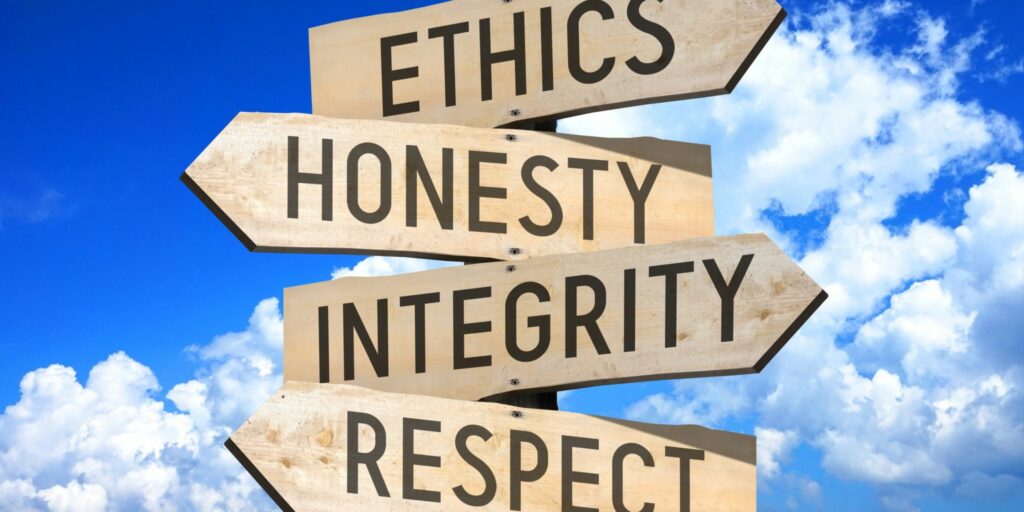While working with a client recently, I was inspired to write a little about values and their importance in our work. Not only do they help me understand my clients and what motivates them; for clients, knowing and working with their values can be the difference between success and staying stuck!
So what exactly are values?
Simply, our values are what is most important to us, such as honesty, freedom, success or security. We have values in all contexts, including relationships, finances and health and fitness. Our values literally underpin our lives, shaping how we perceive the world and interact with it. They determine how we spend our time, what we focus on and how we make decisions. And at the deepest level, they are the drivers towards our true purpose in life.

Why are they important?
So, in essence, being more aware of what’s really important to us helps us to direct our path towards true satisfaction and fulfilment. And when we’re in a role that meets our values we feel more in flow, perform better and achieve better results.
For example, one of my clients knew she wanted to do something different in her career but she couldn’t decide which avenue to invest in. Once we had elicited her values and then mapped them to her possibilities she was able to clearly see that Hypnotherapy was the right choice for her. A year later she is fully qualified, accepting clients and changing lives!
Values can also explain why we are unhappy. If our values are disregarded or conflict with our environment it can feel unbearable, this is where stress or burnout can occur. Another example; back in 2020 while I was working in the NHS a lot changed. Due to the changes, I started to notice a clear disparity between my values and the values of the service I worked in. Because of this, the job that I had loved became extremely stressful; I spent my days feeling angry, distressed and unheard, leaving me constantly emotional. In the end I made the hard decision to leave for my own mental health. However, this is when I began Freedom 2 Heal, showing how values can also be the catalyst for positive change.
The difference between values and beliefs

Before I talk a bit about how we develop values, I think it’s important to highlight the difference between values and beliefs. Now, imagine a tree, where you keep all your values on a subject. So, let’s look at your career tree for example. If each branch is a value; money, freedom, success the leaves would be beliefs such as ‘to be worthy and successful I must not make mistakes’. So our beliefs grow from our values.
As we will go on to discuss, values, particularly core values are largely unconscious whereas beliefs are more conscious and come from decisions that we made according to our values.
Where do our values come from?
We learn our values through our experiences and our environment, starting from the moment we are born. Although it has been suggested that values can also be handed down genealogically. Ramos et al (2019) even indicated that so we are born with an inherited moral compass. However, Sociologist Morris Massey’s concept of the formation of our values appears to be the most widely accepted. He described three major periods during which values are developed (Massey, 1980).
The Imprint Period 0 – 7
Where we literally soak up our surroundings, accepting most of what we experience as true; the norm. This is the period where most of our unconscious programming happens; where we learn our sense of right and wrong.

This is also where we will usually find the route to our problems as adults. Unsurprisingly, this is the period my clients often visit in our sessions. Of course, there can be events later on that cause us problems, but these events are often triggered by emotions from those earlier events.
The Modelling Period 8 – 13
This is the period where we start to notice those outside of ourselves and begin to copy others, still sometimes unconsciously but also consciously now. We usually mimic those closest to us, often parents, family or teachers; trying out different persona’s to see what feels right. Some of our most important values are formed in this period; around age 10. In fact,
The Socialisation Period 14 – 21
At this time, we develop more as individuals and begin to move away from the family unit and towards our peers who seem more like us. We learn relationship and social values during this period and by the age of 21 the values formation is largely complete; specifically our core values.
Sources of values
As discussed, we initially learn our values from those closest; our families, friends, teachers. And they are also influenced by where we live and our culture, our wealth or economic position. Media also plays a big part in programming (if you allow it).

Remember earlier, we mentioned that values are in place by age 10, well, Massey’s view was that our values are based on what was happening in the world when we were 10. This would make sense when you look at generational values, for example would your values be the same as someone who was a child during a world war or would? Unlikely.
Changing our values
As mentioned, it is believed that our core values do not change past age 21 without a significant emotional event (James and Woodsmall, 2017). And this is somewhat the case. However, with therapeutic techniques such as Matrix Reimprinting and NLP we are able to revisit the moment where the values were created, change the memory and change our values, sometimes in a matter of minutes. I have experienced this first hand, as during my Master Practitioner training my values shifted drastically after my breakthrough session as did my clients.
Why do we want to change values?
As we discussed, values are the basis on which we create our beliefs about the world and therefore guide our actions. Sometimes these beliefs don’t serve us anymore. For example, an old belief that women cannot earn more than a man would not be helpful if the woman was an aspiring entrepreneur. Where as a belief about the value of her expertese would serve her much better.
Values driven by fear can also keep us stuck (remember our chat about ‘away from’ values). Imagine that someone has a personal relationship value of safety, this came about due to them experiencing abuse and this person’s main driver is to stay safe. To achieve this, they avoid all intimacy and do not allow a partner to get close to them even though what they really want is to be in a loving relationship. See how that might not be helpful?

Order is also important, for example, you want money to be somewhere in the top 4 of your business values for it to be successful. This is also something that can be done with NLP. Although, I find once we remove negative beliefs and decisions, values are often where they need to be.
So, in conclusion, values are literally the basis for everything that we do in life. They are our drivers to success or they are the reason that we stay stuck.
References
James, T and Woodsmall, W. (2017). Time line therapy and the basis of personality. Crown House Publishing.
Massey, M.E. (1980). The people puzzle ; understanding yourself and others. Reston, Va.: Reston Pub. Co.
Ramos, A.M., Neiderhiser, J.M., Griffin, A.M. and Reiss, D. (2019). Did I Inherit My Moral Compass? Examining Socialization and Evocative Mechanisms for Virtuous Character Development. Behavior Genetics, [online] 49(2), pp.175–186. doi:https://doi.org/10.1007/s10519-018-09945-4.


